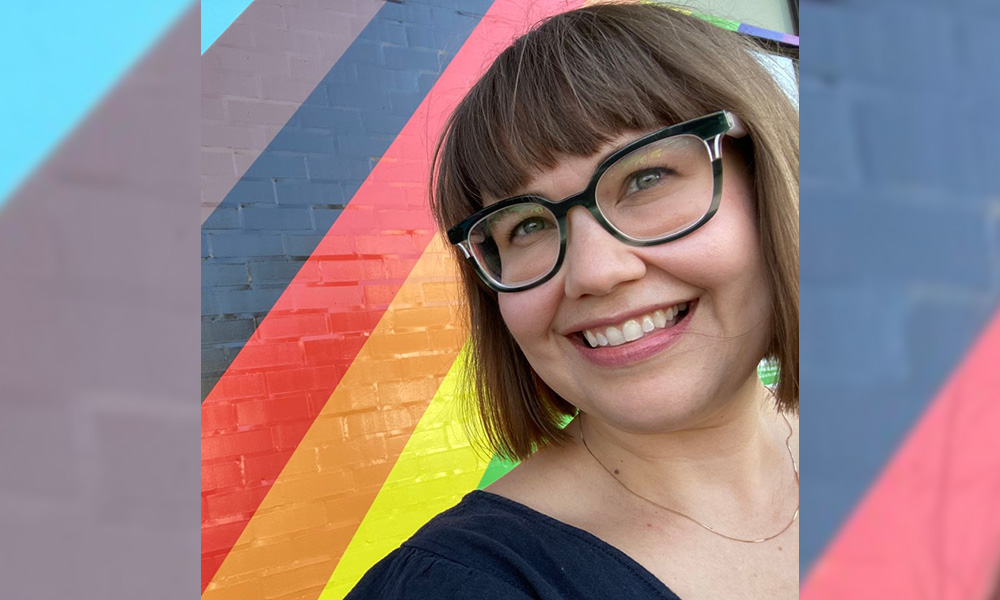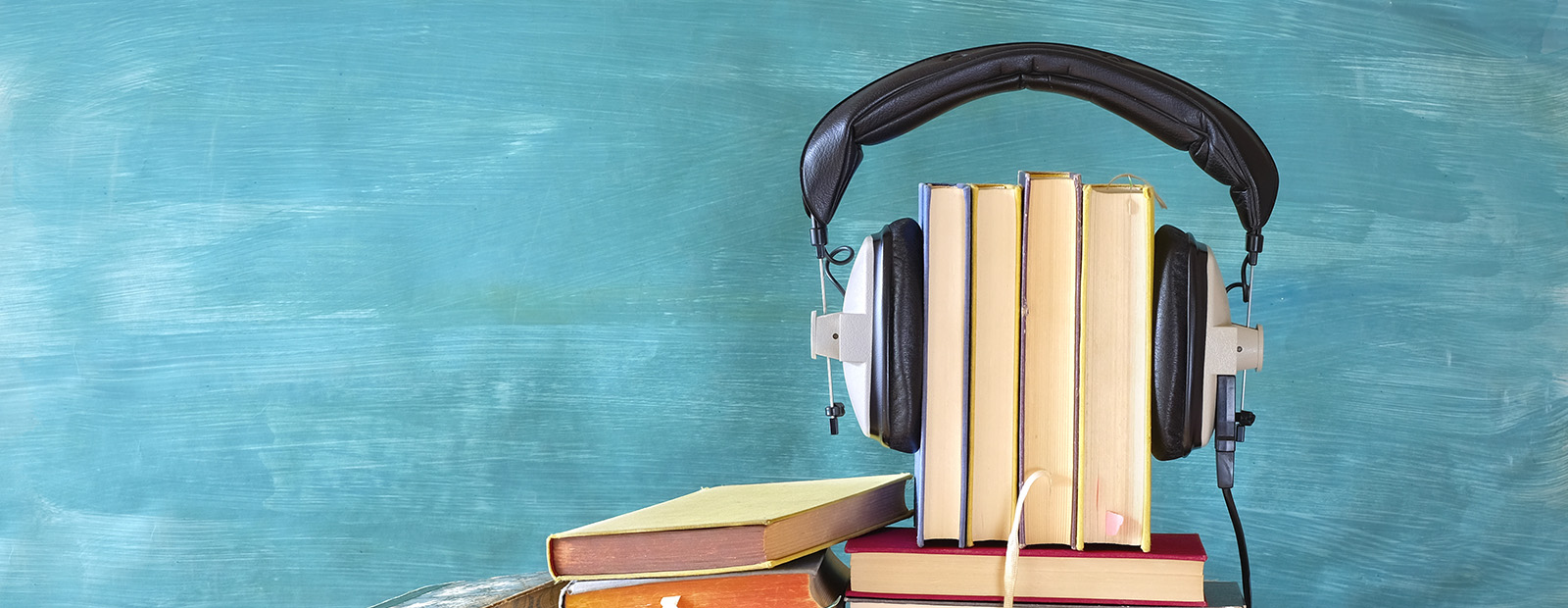From conversations about Margaret Paston, a fifteenth-century Norfolk writer whose letters about family life and property were recently digitized by the British Library, to Bola Agbaje, a British-Nigerian playwright whose 2007 breakout Gone Too Far! explores themes of belonging among youth in South London, Orlando: A Podcast on Women’s Writing spends its roughly 30-minute episodes digging deeply into women’s writing.
In each of the nine episodes recorded so far, Dr. Kathryn Holland, an instructor in the Department of English and Gender Studies minor who co-created and co-hosts the podcast alongside Dr. Karen Bourrier of the University of Calgary, interviews a scholar about a single woman writer spanning anywhere from the medieval period to today. The podcast is named after Virginia Woolf’s experimental novel Orlando: A Biography (1928) and the Orlando Project, the feminist digital humanities initiative to which it belongs.
Their conversations, says Dr. Holland, inevitably include a moment when things accelerate and gain a new kind of vigour.
“We can never really predict when or how it happens, but it's usually when we focus on a very particular issue – the sale of a manuscript, a cheeky interpretation of a single line of a poem or a new research project,” says Dr. Holland. “In that moment, we all unlock a new level of insight and engagement.”
Those moments of connection – among the hosts and their guests, between faculty and students, among readers around the world – are at the heart of what the Orlando Podcast team is trying to foster.
“We’ve been inspired, from the start, by current public conversations about women’s writing – the impact of the pandemic on the material conditions of writing for women and the controversy around pseudonymous authorship across historical periods raised by the recent Reclaim Her Name campaign,” says Dr. Holland.
But women’s writing as a whole also offers a wide range of intersectional perspectives.
“Studying women’s writing enables us to explore texts, in many genres and media, by women whose lives span a significant array of identities, experiences and relationships. In doing so, we can engage with understandings of gender, creativity and agency that developed in other historical moments.”
Ultimately, Dr. Holland hopes that listeners of the podcast will be inspired to think about connections between writing and culture, pick up texts of different genres and writers who they are unfamiliar with, and strike up conversations about women’s writing with the people around them.
A few months after its launch, the Orlando Podcast’s nine episodes have been downloaded more than 1,800 times and its website, orlandoprojectpodcast.org, has welcomed visitors from around the world.
But the podcast team, which also includes undergraduate students at MacEwan (Gabrielle Baker and Darian Mahmi) and both undergraduate and graduate students at U of C, won’t be finished working when they turn off the mic after the final episode of this first series.
“We're aiming to make the podcast an open educational resource that will be of use to faculty and students at many universities and wherever people are interested in talking about literature and gender.”

